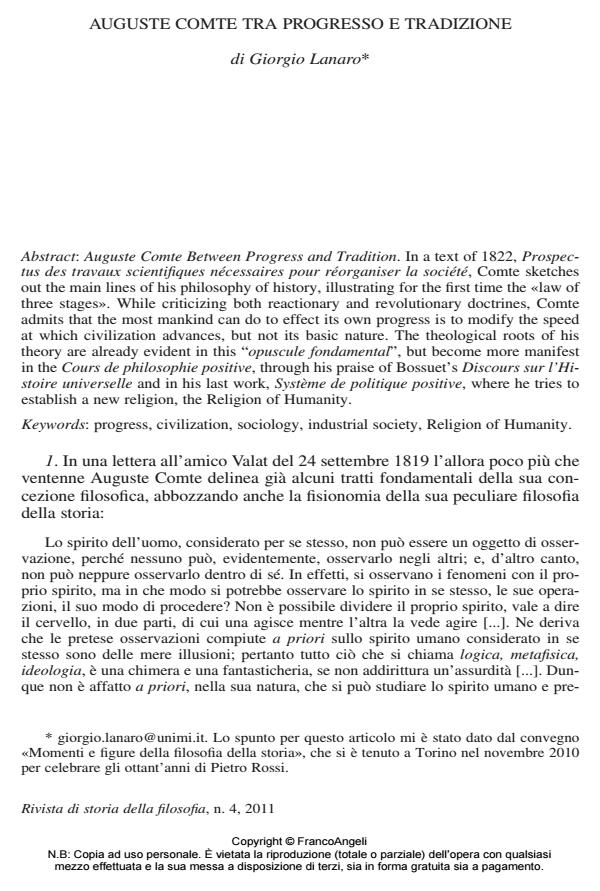Auguste Comte Between Progress and Tradition
Journal title RIVISTA DI STORIA DELLA FILOSOFIA
Author/s Giorgio Lanaro
Publishing Year 2011 Issue 2011/4 Language Italian
Pages 17 P. 693-790 File size 505 KB
DOI 10.3280/SF2011-004005
DOI is like a bar code for intellectual property: to have more infomation
click here
Below, you can see the article first page
If you want to buy this article in PDF format, you can do it, following the instructions to buy download credits

FrancoAngeli is member of Publishers International Linking Association, Inc (PILA), a not-for-profit association which run the CrossRef service enabling links to and from online scholarly content.
In a text of 1822, Prospectus des travaux scientifiques nécessaires pour réorganiser la société, Comte sketches out the main lines of his philosophy of history, illustrating for the first time the «law of three stages». While criticizing both reactionary and revolutionary doctrines, Comte admits that the most mankind can do to effect its own progress is to modify the speed at which civilization advances, but not its basic nature. The theological roots of his theory are already evident in this "opuscule fondamental", but become more manifest in the Cours de philosophie positive, through his praise of Bossuet’s Discours sur l’Histoire universelle and in his last work, Système de politique positive, where he tries to establish a new religion, the Religion of Humanity.
Keywords: Progress, civilization, sociology, industrial society, Religion of Humanity
Giorgio Lanaro, Auguste Comte tra progresso e tradizione in "RIVISTA DI STORIA DELLA FILOSOFIA" 4/2011, pp 693-790, DOI: 10.3280/SF2011-004005